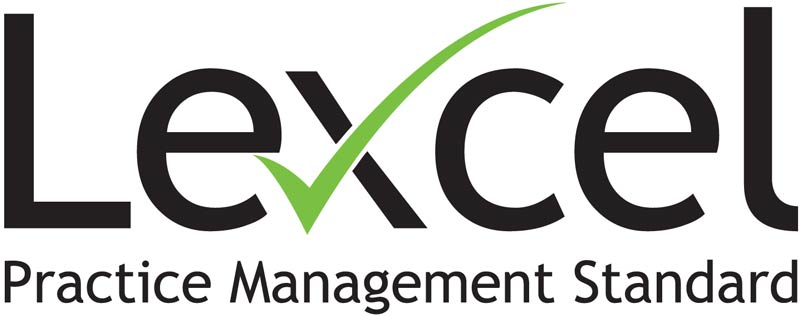A place in a care home costs an average of £5,064 per month (£65,832 per year), and nursing homes are even more expensive, averaging £6,116 per month (£79,508 per year). With most people spending several years in care, it is no surprise that many of us need help covering these costs.
Before Local Authorities provide funding, they conduct a means-tested assessment. To qualify, you must prove that your income is insufficient to cover care costs and that your capital (which includes savings, investments, and property) is below £23,250.
Many people understandably wish to safeguard their assets for their loved ones and may turn to unregulated advisors who promote lifetime property trusts as a strategy for protecting a property from care home fees – often at a substantial cost. However, these trusts frequently fail to achieve their intended purpose and can come with adverse tax consequences.

What is a lifetime property trust?
A lifetime property trust is a legal arrangement for managing property on behalf of beneficiaries. While it can serve as an estate planning tool, it does not guarantee protection from care home fees. This type of trust is established during your lifetime and should not be confused with a Life Interest Trust, which is created through your Will and takes effect upon your death.
Qualified and regulated solicitors may suggest this trust depending on your circumstances; however, they will make you aware that it is not a miracle fix for avoiding care fees. Trusts are complex and must be carefully prepared and administered, as they cannot be easily undone.
Putting a house in a lifetime property trust to avoid care fees
It is not guaranteed that placing your home in a lifetime property trust will protect it from care fees. This is because the Local Authority can assess not only your current assets but also those you have previously owned.
During the assessment, the Local Authority may ask whether you have ever owned property. If they discover that you have placed your home into a trust or gifted it away, they will likely challenge this under the Deprivation of Assets Rules.
There is no fixed period after which assets placed in a trust are safe from these rules. Many mistakenly assume that the inheritance tax ‘seven-year rule’ applies, but this is incorrect, and Local Authorities can look back much further.
If the Local Authority determines that you have deliberately deprived yourself of assets to avoid paying for care, they will treat you as if you still own those assets during their assessment.
Tax consequences of lifetime property trusts
In addition to the Deprivation of Assets Rules, adverse tax consequences can arise when transferring property into a trust.
When the trust is created, if the property’s value exceeds the Nil Rate Band allowance (currently £325,000), an immediate inheritance tax charge of 20% applies to the excess.
The trust is then reassessed for inheritance tax every ten years. If its assets exceed the Nil Rate Band at the tenth anniversary, inheritance tax at a maximum rate of 6% is charged on the excess. If the trustees transfer the property out of the trust, a further inheritance tax charge known as an exit charge may apply.
Additionally, if you continue to benefit from the property – such as by living in it – the Gift with Reservation of Benefit (GROB) rules will apply. As a result, the property’s value remains part of your estate for inheritance tax purposes, even if legal ownership has been transferred to the trust.
If the property placed into trust is your main residence, this could also affect your estate’s eligibility to claim the Residence Nil Rate Band (RNRB). This is an additional inheritance tax allowance that can be claimed when your estate includes a property that was your main residence and is passing to direct descendants (such as children, grandchildren, stepchildren, or step-grandchildren).
Finally, by creating a trust, you place responsibilities on your chosen trustees, who must administer the trust in accordance with the rules and regulations. One of these responsibilities is registering the trust with the HMRC Trust Registration Service (TRS), which must be done within 90 days of creation. Failure to do so can result in penalties from HMRC.
Given the complexity of these tax implications and the administrative responsibilities for trustees, seeking advice from a regulated solicitor is essential before proceeding.
Can you avoid care home fees with a lifetime property trust?
Ultimately, while many unregulated ‘advisors’ promote lifetime property trusts, there are no guarantees they will be effective. It is essential to approach such claims with caution, as promises of a simple fix are often misleading.
As with all aspects of estate planning, the best course of action is to seek advice from a qualified and regulated solicitor.
Can you avoid care home fees without a trust?
Before proceeding with a trust, a qualified solicitor will be able to explain the current care funding rules and help you explore all available options.
Potential alternatives include:
- Financial planning: Consulting a qualified financial planner can help explore options such as care annuities, which provide a guaranteed income to cover care costs.
-
Updating your Wills: A trust in your Will could help protect assets. There are different types of trusts, and a solicitor will be able to advise on the most appropriate one for your circumstances.
One example is a Life Interest Trust, which allows you to designate a beneficiary (such as a surviving spouse) to benefit from certain assets during their lifetime without owning them outright. The trust ensures that the assets are preserved for future beneficiaries, such as children. These assets cannot be diverted if the spouse remarries, becomes bankrupt, divorces, or is means-tested. -
Lasting Powers of Attorney (LPAs): Setting up LPAs ensures that trusted individuals can manage your finances and explore alternative care funding options if you lose capacity, or if you retain capacity but need assistance.
Is a Life Interest trust the same as a Protective Property Trust?
Yes, a Protective Property Trust is a Life Interest Trust. The term is frequently used by unregulated advisors as a marketing phrase to emphasise the “protection” element. However, the correct legal term is Life Interest Trust.
Does a ‘Family Trust’ protect assets from nursing home fees?
The term family trust is not a legally defined structure. It is an informal label often used to describe trusts created to benefit multiple family members. In legal terms, it typically refers to a Discretionary Trust or a Life Interest Trust, depending on the trust’s specific structure and purpose.
While a family trust may have asset protection benefits in the right circumstances, it does not guarantee protection from care fees and should not be relied upon as such without legal advice.
Care home fees and trust solicitors
Our friendly, qualified, and regulated care home solicitors can provide a clear breakdown of your options, explain the advantages and risks, and help you make a well-informed decision that best serves you and your loved ones. To find out how you can protect your assets, contact us today.










